
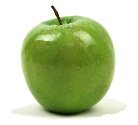


Helping you make healthy choices for you and your family

If you have just found out you are pregnant, you will undoubtedly have a mixture of feelings. Whether your pregnancy was planned or not, your priority now is to keep yourself in good health to cope with the increasing demands on your body.
Click on the headings below to find out how you can best look after yourself to give you and your baby the best chance for a long and healthy life.
Alcohol is a poison and can seriously damage your developing baby, especially in the first six to 12 weeks of pregnancy. There is no safe level but you should never drink more than one unit per day (one unit = one small glass of wine, half a pint of beer/ cider, a pub measure of spirits) and certainly not every day. Alcohol in pregnancy can lead to Foetal Alcohol Syndrome which can cause facial abnormality, heart defects, abnormal limb development and reduced intelligence in your baby.
It would be better not to drink at all and if that is a problem for you, it is essential that you wean yourself off alcohol. If you are a heavy drinker, your GP or midwife should be able to advise you.
^ Top
It would be better not to drink at all and if that is a problem for you, it is essential that you wean yourself off alcohol. If you are a heavy drinker, your GP or midwife should be able to advise you.
^ Top
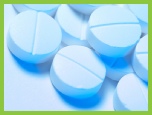

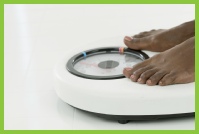
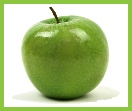
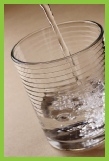
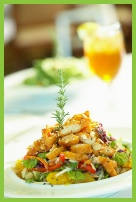

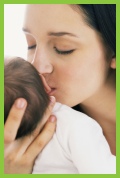
If you are a smoker and did not have time to prepare for your pregnancy, you should make every effort to stop. Chemicals absorbed from cigarette smoke reduce the number of cells produced in your baby's body and brain. Nicotine constricts the blood vessels to the placenta which reduces the blood supply to your baby. The raised levels of carbon monoxide in your blood also reduces the amount of oxygen reaching your baby, resulting in lower birth weight and a higher incidence of premature birth.
Studies have shown that babies of smokers are more likely to have congenital abnormalities, and miscarriage is twice as likely due to damaged blood vessels in the placenta.
Medication
It is well known that some drugs can affect the developing baby so they should be avoided wherever possible. If you are on medication for a medical condition like diabetes, thyroid disease, inflammatory bowel disease or epilepsy then you should tell your GP or specialist that you are pregnant as soon as possible, so they can review your treatment if necessary.
Recent studies have shown that over-the-counter painkillers like Ibuprofen should be avoided in pregnancy and aspirin is also advised against. If you are in need of a painkiller for a headache, paracetamol is regarded as a safer choice. However, if you wish to avoid all drugs, a headache can be dealt with by lying down or rubbing Lavender oil on your temples.
^ Top
It is well known that some drugs can affect the developing baby so they should be avoided wherever possible. If you are on medication for a medical condition like diabetes, thyroid disease, inflammatory bowel disease or epilepsy then you should tell your GP or specialist that you are pregnant as soon as possible, so they can review your treatment if necessary.
Recent studies have shown that over-
^ Top
Everyone should exercise for 30 minutes at least five days a week and now is no exception. Exercise strengthens the whole body and allows toxins to be dealt with by helping to move lymph around the lymphatic system (our garbage disposal system).
Having a supple body before pregnancy will make a significant difference when the extra demands increase later in pregnancy and during labour. Aerobic exercise like swimming, cycling, walking or dancing are ideal to prepare your body for labour. Your midwife should be able to tell you about ante-natal classes which will teach you helpful exercises. Yoga exercises may also be helpful.
The National Childbirth Trust also provides local ante-natal exercise classes in the UK for a small fee.
^ Top
^ Top
The amount of weight put on by women in pregnancy varies between 9 - 13.5kg (20 - 30lbs) with the most rapid gain usually between weeks 24 and 32. Your baby, uterus, placenta and the fluids surrounding your baby will account for more than half your total weight gain. Also, during this time, your blood volume increases and you begin to store fat in preparation for breastfeeding.
If you are overweight before you are pregnant, your body will be placed under a much greater strain during pregnancy giving rise to back problems, joint pains, varicose veins, cardiovascular problems, haemorrhoids and stretch marks.
Now is not a good time to go on a reducing diet. However, if you have been eating a lot of high calorie junk food or a diet high in hydrogenated fat or starches, changing to more healthy alternatives like fruits, vegetables and wholegrains should result in a reduction in weight which will not harm your baby.
Eating little and often is better than eating three larger meals each day and if you suffer with “morning sickness” or are nearing the end of your pregnancy you will find that smaller meals, eaten more often, are easier to tolerate. Try to avoid eating a large meal after 7pm as calories not used up by bedtime will be turned to fat.
^ Top
Morning Sickness
Eating little and often is better than eating three larger meals each day and if you suffer with “morning sickness” or are nearing the end of your pregnancy you will find that smaller meals, eaten more often, are easier to tolerate. Try to avoid eating a large meal after 7pm as calories not used up by bedtime will be turned to fat.
^ Top
Morning Sickness
Although many women suffer from nausea in the first three months of pregnancy, they can also be hungry at the same time and food usually provides relief.
If you have feelings of sickness during the day (not necessarily in the mornings) you will probably find it more manageable by eating small, frequent snacks. You may also find that certain foods or beverages that you used to enjoy are no longer tolerable and some cooking smells may trigger an episode of nausea, too.
Here are some suggested snack foods which you can have available if you experience “morning sickness”:
Slice of wholemeal toast
Nuts and raisins
Dried apricots
Apple
Rice cakes
Raw vegetables eg. carrots, celery, tomatoes
Fruit juice
Muesli-type bar
Soft fruits eg. peach, plums, pear
Ginger has been found to help feelings of nausea. This can be taken as a herbal tea (1-2 cups a day) or by ingesting half a teaspoon (1/8 teaspoon x4 a day) of powdered ginger.
Raspberry leaf tea (1 - 3 cups a day) may also help, especially if combined with ginger, mint and a little lemon to give it more taste. Raspberry leaf tea has been used for centuries in pregnancy to smooth the muscles of the uterus, which is also helpful in labour.
If you have a juicer, mixing up the following juices may also help:
Ginger, kiwi fruit, mint and pineapple; apple, carrot and ginger; apple, fennel, ginger and peppermint/spearmint.
Studies have also shown that 25mg of Vitamin B6 taken three times a day can significantly reduce morning sickness but it is wise to tell your doctor or midwife that you are taking it.
^ Top
Slice of wholemeal toast
Nuts and raisins
Dried apricots
Apple
Rice cakes
Raw vegetables eg. carrots, celery, tomatoes
Fruit juice
Muesli-
Ginger has been found to help feelings of nausea. This can be taken as a herbal tea (1-
Raspberry leaf tea (1 -
If you have a juicer, mixing up the following juices may also help:
Ginger, kiwi fruit, mint and pineapple; apple, carrot and ginger; apple, fennel, ginger and peppermint/spearmint.
Studies have also shown that 25mg of Vitamin B6 taken three times a day can significantly reduce morning sickness but it is wise to tell your doctor or midwife that you are taking it.
^ Top
Dietary Support
The old saying "eating for two" is quite right - not in quantity of food but in quality. More nutrients are required during pregnancy because your baby will take all it needs from your resources and if they are low, you may become malnourished. It has also been shown that poor maternal nutrition may set the stage for the development of cancer later on in your baby’s life.
The old saying "eating for two" is quite right -
Foods you should avoid that may reduce your nutrient intake are:-
a) Processed Food - the nutrients are either reduced, removed or destroyed by canning, pasteurising or freezing. Do not Microwave your food as this destroys the nutrients and alters your blood. See Microwave Ovens.
b) Foods with artificial preservatives, flavourings or colourings -
c) White foods - such as white flour, white rice, white pasta, white bread or white sugar. They contain little nutrition or fibre but are high in calories and starch.
d) Strong coffee and tea - they can upset your digestive system. The tannic acid in tea can prevent the absorption of iron from food if drunk with a meal and there are studies showing that tannic acid and caffeine may affect the baby.
There are certain nutrients which are essential to prevent birth defects as they are the building blocks for a new baby. The most well-known of these nutrients is folic acid which has been proven to prevent spina bifida. At least 400mcg of folic acid is needed daily and ideally, should be commenced at least three months before stopping contraception. If your pregnancy is unplanned, you may not have had the opportunity to increase your intake of folic acid so you should do so as soon as possible.
Folic acid can be found in citrus fruits, wheatgerm, wheatbran, nuts, pulses, wholemeal bread, eggs, brown rice, kidney beans and asparagus. Zinc helps the absorption of folic acid and can be found in meat, hard cheese, wholemeal bread, eggs, pulses, rice, green leafy vegetables and potatoes.
Your intake of Protein, calcium, magnesium and iron are also important at this stage and the vitamins A, B6, B12, C, D, E and K to prevent cleft palate, hydrocephalus (water on the brain), Siamese twins and kidney, limb, eye and brain malformation.
Some pregnant women find they are low in iron and your doctor may recommend increasing your intake of iron-rich foods.
There are two types of iron in foods – haem iron and non-haem iron. Haem iron is absorbed the best and can be found in red meat (1.9mg), liver (12.5mg), sardines (4.6mg) and egg yolk. The non-haem iron must have vitamin C for absorption and this can be found in dark green leafy vegetables like spinach and cabbage, dried fruits (5.8mg) like apricots, raisins and prunes, parsley (8mg) haricot beans/baked beans (2.5mg), and kidney beans, wheat bran (12.9mg), wholemeal bread (2.5mg) and cocoa powder (10.5mg). Fortified cereals also contain iron and the values can be found on individual packets.
Good sources of Vitamin C are: Citrus fruits like oranges, lemons, limes etc, red peppers, strawberries, cranberry juice, cherries, blackcurrants, broccoli, watercress, cabbage, and Brussels sprouts.
If your doctor advises iron tablets due to anaemia, then it is important that you eat a diet high in fibre as iron tablets often cause constipation. Supplements containing psyllium husk provide a good source of fibre if you find other sources difficult to tolerate. Your fluid intake is also important to prevent constipation. (See Fluid Intake below).
Unfortunately, in today's world, it is impossible to receive the full complement of nutrients required to maintain good health. Every decade, the nutrient value in our fruits and vegetables is depleted because of modern farming methods. See Nutritional State of Our Food for more details.
Therefore, it is important to build up the body during pregnancy. For a list of suppliers of quality nutritional supplements, recommended by doctors around the world for their safety and effectiveness, visit Useful Links.
^ Top
d) Strong coffee and tea -
There are certain nutrients which are essential to prevent birth defects as they are the building blocks for a new baby. The most well-
Folic acid can be found in citrus fruits, wheatgerm, wheatbran, nuts, pulses, wholemeal bread, eggs, brown rice, kidney beans and asparagus. Zinc helps the absorption of folic acid and can be found in meat, hard cheese, wholemeal bread, eggs, pulses, rice, green leafy vegetables and potatoes.
Your intake of Protein, calcium, magnesium and iron are also important at this stage and the vitamins A, B6, B12, C, D, E and K to prevent cleft palate, hydrocephalus (water on the brain), Siamese twins and kidney, limb, eye and brain malformation.
Some pregnant women find they are low in iron and your doctor may recommend increasing your intake of iron-
There are two types of iron in foods – haem iron and non-
Good sources of Vitamin C are: Citrus fruits like oranges, lemons, limes etc, red peppers, strawberries, cranberry juice, cherries, blackcurrants, broccoli, watercress, cabbage, and Brussels sprouts.
If your doctor advises iron tablets due to anaemia, then it is important that you eat a diet high in fibre as iron tablets often cause constipation. Supplements containing psyllium husk provide a good source of fibre if you find other sources difficult to tolerate. Your fluid intake is also important to prevent constipation. (See Fluid Intake below).
Unfortunately, in today's world, it is impossible to receive the full complement of nutrients required to maintain good health. Every decade, the nutrient value in our fruits and vegetables is depleted because of modern farming methods. See Nutritional State of Our Food for more details.
Therefore, it is important to build up the body during pregnancy. For a list of suppliers of quality nutritional supplements, recommended by doctors around the world for their safety and effectiveness, visit Useful Links.
^ Top
Most people do not drink sufficient fluids each day but now is a good time to get into the habit of increasing your consumption of water. Ideally you should be drinking at least two litres of water a day. That should not include water used for tea or coffee as they are both dehydrating. This means that the benefit from their volume is soon cancelled out by their diuretic effect.
Sufficient fluids allows your body to remove toxins. If you are dehydrated, water is drained away from some cells and sent to the vital organs. This can lead to tiredness, lack of concentration and gastro-intestinal problems.
Tea and coffee both contain caffeine and should be kept to a minimum. If you drink a lot of these beverages then now is the time to cut down. Some pregnant women find that they cannot tolerate these drinks during pregnancy.
Fizzy drinks and any drinks containing artificial sweeteners should be avoided. Aspartame, which is commonly used in diet drinks is a bio-chemical toxin and has been found to cause birth defects amongst many other health problems. For more information on Aspartame click here.
A glass of fruit juice can be counted as one of your required daily portions of fruit but you should not drink more than two a day because they can be quite acidic.
If you have problems drinking water, then diluting fruit juice is one way of making it more palatable. However, like most things, if you drink it often enough it becomes an acquired taste.
Filtered water is better than water straight from the tap but remember to change the filters regularly to prevent bacteria, nitrate, and metal build up. Mineral water is also good, preferably “still” water from glass bottles rather than plastic. Plastic bottles may contain chemicals which can cause birth defects. If you can only buy plastic bottles, make sure you drink it as soon as possible, as the closer it is to the expiry date, the higher level of chemical contamination in the water. NEVER keep water in a plastic bottle in a hot place, like a car during summer as the plastic chemicals will easily leach into the water.
If you live in an area with artificially fluoridated water, you should avoid drinking tap water altogether. The only guaranteed method of eliminating this toxic chemical is to install a reverse osmosis unit. Details about this can be found here.
^ Top
Fizzy drinks and any drinks containing artificial sweeteners should be avoided. Aspartame, which is commonly used in diet drinks is a bio-
A glass of fruit juice can be counted as one of your required daily portions of fruit but you should not drink more than two a day because they can be quite acidic.
If you have problems drinking water, then diluting fruit juice is one way of making it more palatable. However, like most things, if you drink it often enough it becomes an acquired taste.
Filtered water is better than water straight from the tap but remember to change the filters regularly to prevent bacteria, nitrate, and metal build up. Mineral water is also good, preferably “still” water from glass bottles rather than plastic. Plastic bottles may contain chemicals which can cause birth defects. If you can only buy plastic bottles, make sure you drink it as soon as possible, as the closer it is to the expiry date, the higher level of chemical contamination in the water. NEVER keep water in a plastic bottle in a hot place, like a car during summer as the plastic chemicals will easily leach into the water.
If you live in an area with artificially fluoridated water, you should avoid drinking tap water altogether. The only guaranteed method of eliminating this toxic chemical is to install a reverse osmosis unit. Details about this can be found here.
^ Top
Personal Hygiene
You may be shocked to discover that many of the products you use daily for personal hygiene contain a toxic cocktail of chemicals which cannot only harm your long-term health but can also cause birth defects. Recent studies have shown that shampoos, shower gels, and bubble baths contain chemicals which have the potential to cause infertility in boys. These chemicals are able to pass through your skin into your bloodstream and across the placenta into your unborn baby.
You may be shocked to discover that many of the products you use daily for personal hygiene contain a toxic cocktail of chemicals which cannot only harm your long-
Common chemicals that should be avoided are: Sodium Lauryl Sulphate found in toothpastes and some mouthwashes; Sodium Laureth Sulphate found in shampoos, shower gels and bubble baths; Propylene Glycol found in skin care products; DEA, MEA, TEA found in cosmetics, shampoos and shower gels; Fluoride found in toothpastes; Triclosan found in toothpaste, deodorants and anti-bacterial products; and Talc. See Controversial Ingredients for more details.
Therefore, the best chance of having a healthy baby would be to find safer alternatives. These are much easier to find now that information about controversial ingredients has become better known.
For a list of reputable suppliers, see Useful Links.
Therefore, the best chance of having a healthy baby would be to find safer alternatives. These are much easier to find now that information about controversial ingredients has become better known.
For a list of reputable suppliers, see Useful Links.
Taking Responsibility
Starting a family is an exciting part of your life and will be one of your greatest life-changing moments. When you hold your newborn baby in your arms, nothing will ever be the same again. Providing your precious child with a safe environment to grow, from a tiny collection of cells to a fully developed baby, is the first step in becoming a responsible parent and will give your baby the best chance of a healthy future.
Starting a family is an exciting part of your life and will be one of your greatest life-
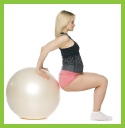
There are a variety of ways to stop smoking. Your GP or midwife can advise you or you can find out about support groups in your local library or telephone directory. At the end of the day, whichever method you choose, you will only succeed if you really want to give up. And, if you want a healthy baby, then you really have no other choice.
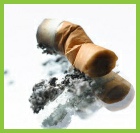

| Your Health Your Future |
| Controversial Ingredients |
| Nutritional State |
| Parent and Child |
| Microwave Ovens |
| Recommended Books |
| Skin Absorption |
| Sodium Lauryl Sulphate |
| Propylene Glycol |
| DEA, MEA, TEA |
| Chemical Calculator |
| Fluoride |
| Aspartame |
| Fluoridation |
| Water Filtration |
| Planning a Pregnancy |
| Pregnancy Care |
| Post Pregnancy Care |
| Amazon Books |
| EBooks |
| About Us |
| Health Services |
